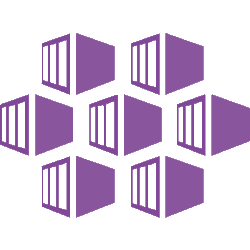Your Kubernetes experts
Faced with containers and microservice stacks, thanks to our kubernetes experts, we help you modernize your IT systems: on-premise, Enix hosting, or on third-party clouds.
New opportunities with Kubernetes
When the transition is well-prepared by adopting best practices, switching to containers means benefiting from a maximum of improvements…Velocity
Accelerating the production cycle of your applications and software.Stability
Improving the availability of your platforms and services thanks to Kubernetes self-healing mechanismsSavings
Achieving even higher density with containers compared to server virtualization.Simplicity
Greater independence and simplicity by deploying apps uniformly on Kubernetes, regardless of the underlying infrastructure.Scalability
Simplifying the maintenance and scaling of your infrastructure and applications thanks to native autoscaling in Kubernetes.Security
Packaging application environments into secure, self-contained containers.The usual Kubernetes issues
You are likely to face the following questions, where our Kubernetes experts can assist you:
Kubernetes in production
Our experts support you in managing your entire Kubernetes platform and its multiple Cloud Native components.

Storage
Persistent storage management with CSI plugins and integration with existing storage solutions (iSCSI, …).

Security
Kubernetes cluster security, certificate and PKI management, user authentication management.

Database
Integration of internal or external databases to the Kubernetes cluster.

Network
Interconnection of nodes via CNI and integration with an existing network (BGP, static routing…).

Observability
Monitoring via metrology (Prometheus, Grafana), centralized logs (Graylog, ELK…) and tracking.

Maintenance
Apps packaging and Repository. Cluster updates with version upgrade and management of K8s resources obsolescence.

Scaling
Container orchestration, cluster and cloud native components scaling.

Architecture
High availability insurance, DNS infrastructure, service meshes implementation…

GitOps
System automation and reproducibility thanks to modern devops practices applied to the infrastructure.
Orchestrating containers with Kubernetes requires harmonizing these various components. This is referred to as the Cloud Native ecosystem, and we are proud to partner with the Cloud Native Computing Foundation. Additionally, we co-organize KCD France, the leading Kubernetes event in France.
With nearly a decade of Kubernetes expertise, we deploy and operate your platform, whether as a custom vanilla Kubernetes, with Kubernetes distributions (Omni Talos, Red Hat OpenShift, Suse Rancher, Mirantis MKE, etc.), or using managed K8s services on public clouds (Amazon EKS, Azure AKS, Google GKE, OVHcloud Managed K8s, Scaleway Kapsule, etc.).










Leverage our Kubernetes expertise
Operations
As a recognized specialist in Kubernetes and day2 operations within the French IT ecosystem, we can handle the operational management of your clusters, whether during business hours or 24/7.
Our experts are also available to operate your underlying infrastructure (Network, Hardware, VMs) and services in high availability with a Cloud Native approach (Storage, Databases, etc.).
Audit & Build
Whether for a new architecture or the migration of an existing one, together we will determine and design your optimal Kubernetes and Cloud Native solution.
Once you have become autonomous, and whatever the problem, we accompany you in a flexible way, whatever the environment: on-premises, Enix cloud or third-party cloud provider.
Container orchestration also goes along with deep changes in Dev and DevOps methodologies that we can help you with.
Kubernetes Training
Our Kubernetes experts have already trained several thousand people worldwide on Docker and Kubernetes. Among the Enix founders and a renowned trainer, Jérôme Petazzoni is one of the creators of Docker.
We offer mutualized or dedicated trainings, face-to-face or remotely, for all profiles (DEV, DEVOPS, OPS), with a customized program: the Enix High Five!